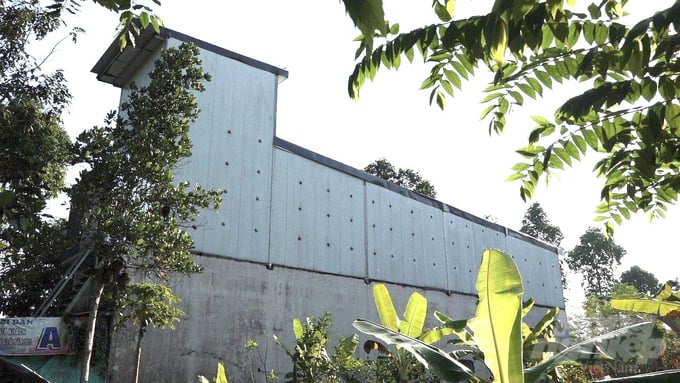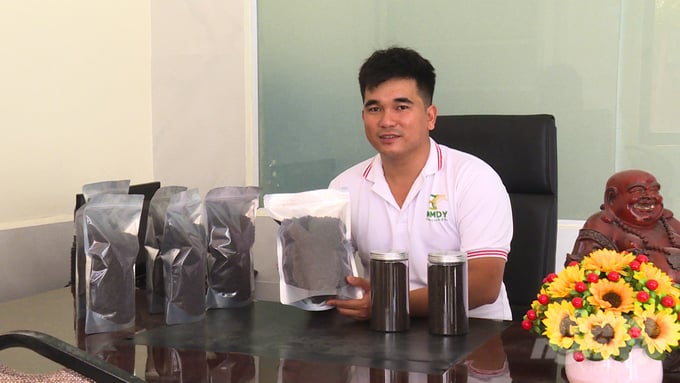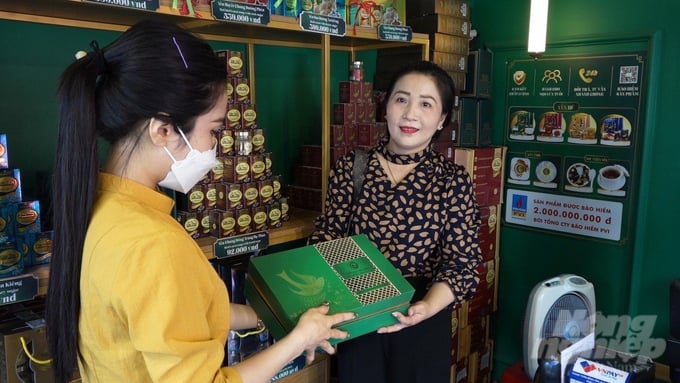May 19, 2025 | 01:56 GMT +7
May 19, 2025 | 01:56 GMT +7
Hotline: 0913.378.918
May 19, 2025 | 01:56 GMT +7
Hotline: 0913.378.918

In recent years, the Mekong Delta has seen a significant increase in the construction of swiftlet houses thanks to the attractive economic value this industry brings. Photo: Ho Thao.
Swiftlet farming has had a strong development in recent years and the construction of swiftlet houses is considered a "white gold mine" with the ability to bring significant profits. A successful swiftlet house can generate hundreds of millions of VND a year.
The whole country currently has approximately 24,000 swiftlet farming establishments, producing 100 tons of bird's nests each year. Particularly in Tra Vinh province, there are 628 swiftlet houses and more than 500 farming households, and many people have made a fortune without requiring food costs. From raw bird's nest to preliminary processed bird's nest, the prices fluctuate around VND 18 - 22 million/kg and reach even higher marks depending on the season.
However, to achieve success in swiftlet farming, farmers need to focus on implementing safe husbandry practices. Nguyen Van Trinh, a bird's nest farmer in cluster 1, Chau Thanh town, Tra Vinh province, shares his experiences in maintaining his swiftlet house. He cleans the swiftlet house twice a month. “You have to clean the walls and floor to prevent bacteria and parasites as well as pathogenic fungi and mice,” he said. Trinh also turns on the speakers at fixed times to attract the swiftlets and let them develop habits without negatively affecting the neighbors.
Along with exploiting the bird’s nest business, Trinh also utilizes bird droppings to make soil fertilizer, fungicides and eelworm, as well as compost catalysts. This not only brings high economic value but also contributes to the sustainable development of the agricultural industry.

Raising swiftlets provides a source of fertilizer for crops. This is an effective way to utilize resources and maximize the benefits of this form of livestock farming. Photo: Ho Thao.
Duyen Hai district is making great developments in the construction of swiftlet houses. From 28 in 2018, the number of swiftlet houses has increased to 71 in early 2023. One thing to note is that many swiftlet farming households have not registered and participated in the production - processing linkage to optimize economic value from this form of animal husbandry.
Although bird’s nests are fairly profitable, swiftlets are susceptible to infectious bacterial and parasitic diseases, especially during the rainy season. Therefore, monitoring and preventing diseases in swiftlet need to be taken seriously,” said Tran Quoc Doan, Head of Office of Agriculture and Rural Development of Duyen Hai district.
Swiflet farmers need to regularly take samples and monitor the disease situation while complying with environmental hygiene regulations and ensuring good nutrition for swiftlets. The district also encourages enterprises and farming households to establish processing linkage to increase the economic value of bird's nest products.
According to Tra Vinh Sub-department of Livestock Production and Animal Health, disease surveillance on swiftlet is being carried out strictly and regularly. The goal of this is to promptly detect and handle disease outbreaks at farming facilities while ensuring food safety at bird’s nest processing facilities.
As for bird's nest export enterprises, sampling is carried out every 6 months. After two consecutive sampling sessions, the local authorities will review the list, randomly select swiftlet houses for the next sampling sessions, and immediately give out remedial measures if sample test results show positive for influenza virus during the monitoring process.

Nowadays, bird's nest products are increasingly popular, however, it is important to ensure food safety to protect consumer health. Photo: Ho Thao.
Regarding bird’s nest processing facilities, regular inspection of veterinary hygiene and food safety conditions is being carried out effectively, but the industry still needs to promote disease prevention and food safety to ensure product quality. With the high profits swiftlet farming brings, it is crucial to raise the birds properly and comply with the regulations of the local veterinary agency.
Tran Quoc Viet, Deputy Director of Tra Vinh Sub-department of Livestock Production and Animal Health, said that the agency has made a number of important recommendations for swiftlet farmers. First, farmers need to comply with strict personal hygiene when coming into contact with swiftlets, using protective equipment such as gloves, masks and coveralls. “For new swiftlets or those with pathological symptoms, isolation and close supervision are deemed essential before blending them into the flock. In case of detecting serious disease symptoms, farmers should immediately contact the veterinary agency for assistance”.
Translated by Samuel Pham

(VAN) 14 out of 35 domesticated elephants in Dak Lak province have had their living conditions improved, with 11 of them currently participating in the non-riding elephant tourism model.

(VAN) Muong Nhe Nature Reserve hopes that being upgraded to a national park will lay the foundation for forest protection efforts to be carried out in a systematic, modern, and sustainable manner.
/2025/05/16/3923-2-171845_52.jpg)
(VAN) Lower costs, higher yields, and improved soil quality are outstanding benefits that soybeans bring when integrated into the crop rotation system.

(VAN) The 'For a Green National Environment' programme aims to promote a green lifestyle, support businesses in implementing ESG practices, and turn Net Zero commitments into concrete actions.

(VAN) Cold-barn systems efficiently manage environmental and temperature conditions, which aids in the prevention of respiratory diseases in pigs and protects them from the vectors that transmit African swine fevers.

(VAN) To tackle challenges, the project 'Addressing key technical bottlenecks in the grouper supply chain in Vietnam' has been underway since 2024.

(VAN) The project 'Disease-Resilient and Sustainable Cassava Production Systems in the Mekong Region', funded by the Australian Center for International Agricultural Research (ACIAR), is being implemented from 2024 to 2028.